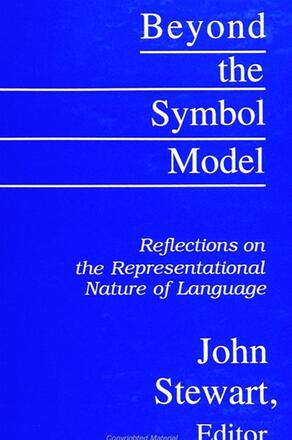
Beyond the Symbol Model
Reflections on the Representational Nature of Language
Alternative formats available from:
This interdisciplinary conversation discusses the nature of language.
Description
Beyond the Symbol Model: Reflections on the Representational Nature of Language presents arguments on several sides of the contemporary debate over the representational nature of language. Contributors include philosophers, linguists, psychologists, semioticians, and communication theorists from the U. S. , Canada, Britain, Northern Ireland, and Israel. The chapters respond to the argument that language can no longer be viewed as a system of signs or symbols, and that a post-semiotic account can be developed from the recognition that language is first and foremost constitutive articulate contact. Three chapters extend this argument, two frame it historically, three disagree, and one contextualizes the "beyond enterprise" itself.
The book is a companion volume to Language as Articulate Contact: Toward a Post-Semiotic Philosophy of Communication. These two books contribute to the ongoing conversation about the nature of language that is strongly influencing theory and research in virtually all the human studies.
John R. Stewart is Professor in the Department of Speech Communication at the University of Washington. His previous books include Language as Articulate Contact: Toward a Post-Semiotic Philosophy of Communication, also published by SUNY Press, as well as Bridges Not Walls: A Book About Interpersonal Communication and (with Carole Logan) Together: Communicating Interpersonally, 4th Edition.
Reviews
"It is exciting that Stewart is questioning assumptions that can be traced back as far as the fifth century B. C. The grouping of essays is very well done and a logical progression is established and maintained by Stewart's editorial commentaries. The references to Heidegger and Gadamer are on the money and the insights are some of the best I've seen. " — Craig R. Smith, California State University—Long Beach
"This book demonstrates a diversity of perspectives under one epistemological theme. The theme, or should I say shift in perspective, of this collection of essays is probably one of the most important issues in the current debate on communication, philosophy, and scientific practice. These essays reflect this debate well. It is to the editor's credit that he allows dissenting voices to be heard in this volume so that readers see the robustness of his argument and the possibility of contributing to the far-from-finished exchanges. " — Klaus Krippendorff, University of Pennsylvania—Philadelphia